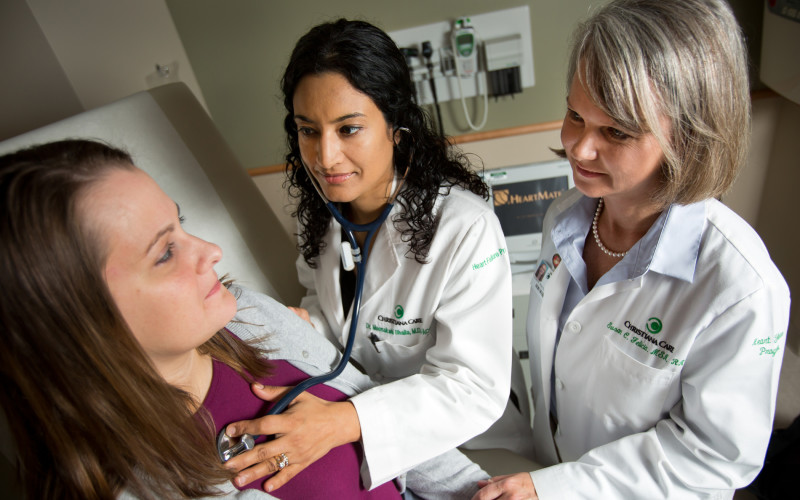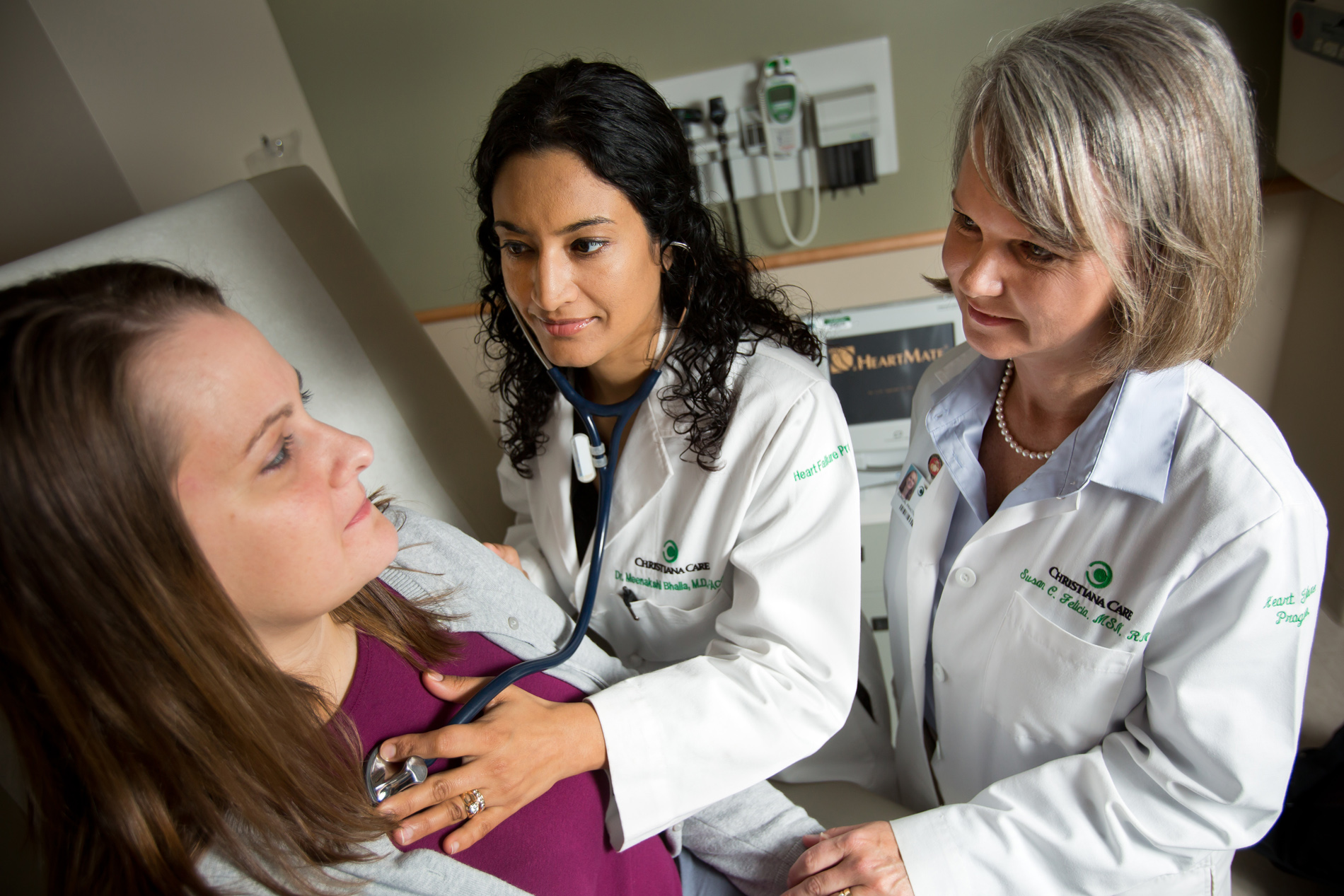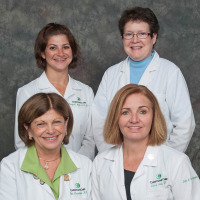Expanding Heart Failure Program provides care in the hospital and beyond


Christiana Care launched a major expansion and restructuring of its Heart Failure Program in October to improve the quality of care during hospital stays and when patients are discharged to rehabilitation centers or for home recovery.
The expansion in staff is possible, in part, thanks to the Patient Navigator Program of the American College of Cardiology (ACC), of which AstraZeneca is a founding sponsor. Christiana Care was among 15 hospitals awarded a first round of grants to provide more intensive case management through the use of patient navigators.
“We have doubled our patient navigators from two to four, and we are not just following patients from the time they come into the hospital but for at least 30 days after the patient leaves,” said Mitchell T. Saltzberg, M.D., FACC, FAHA, medical director of the Heart Failure Program.
The navigator program is also an extension of Care Link Services and the infrastructure for population health management that Christiana Care has pioneered in Delaware. The navigator role is modeled on support offered to ischemic heart patients that began in 2012 as part of a three-year grant funded for $10 million by the Center for Medicare and Medicaid Innovation. Under this grant, through a program called Bridging the Divides, a care management team follows ischemic heart patients after discharge and links them to a wide array of support staff through a virtual hub designed to assist patients with the transition home.
“Heart failure navigators are the next step in this model to further help patients remain in the community to the best that we are able to support them,” said Patty Resnik, vice president, Quality & Care Management. “Navigating health care can be very frustrating because there are so many things to attend to. Care Link provides an advocate to the patient who is outside hospital walls.”
Each year Christiana Care serves between 1,200 and 1,500 heart failure patients and is the only program in Delaware to have received Joint Commission advanced certification in heart failure. Now, through the expansion in staff, all patients will be offered case management services that help them better understand their health condition, care plan and medications, and how to use community resources.
A second attending cardiologist, Meenakshi A. Bhalla, M.D., joined the program in July after having served as Christiana Care’s first fellow in the Advanced Heart Failure and Transplant Cardiology Fellowship Program, a one-year training in advanced heart failure, cardiac transplantation and mechanical circulatory support.
Every day on average, three to five heart-failure patients are admitted to Christiana Hospital and one each day to Wilmington Hospital. Typically there are 30 to 50 such patients throughout the system, Dr. Saltzberg said.

RN, Rachel Clark, RN, Sue Ann Scholl, RN, and Donna Solis, RN.
As patients prepare for discharge, navigators talk about family support, diet, physical activity, follow up appointments, the importance of getting medications right away and in reporting on significant changes in how they feel.
“We talk about lots of practical things, such as whether they can get their medications and who will drive them to the pharmacy,” said Patti Christopher, RN, a heart failure navigator. “Sometimes people won’t tell you that a daughter lives downstate or that there are stairs in their home they will have to climb, and we may have to help them find a way to get a bed downstairs. We have to act a little bit like a detective and follow up with phone calls to their support network when it’s appropriate. We do our best to marshal family support. And we look for anything, including a downturn in mood,
which might hamper a patient’s recovery.”
The navigators also let patients know that some cardiologists are leaving open slots in their daily schedules for heart failure patients who need to see them immediately when a problem arises.
“This helps reduce trips to the emergency department,” Dr. Saltzberg said.
Over the last three years, the Heart Failure Program has made strides in reducing hospital readmissions. Nationally the rate of readmission following heart failure is close to 25 percent within 30 days of discharge. Christiana Care has cut its readmission rate to close to 18 percent.
“We’ve moved the needle fairly aggressively and become a top-tier performer for this at-risk population,” he said.
From Dr. Saltzberg’s perspective, this success is because of several factors: patients receiving appropriate palliative care; consistent use of tele-monitoring and visiting nurses; and navigators stressing that patients follow through with a medical appointment within seven days of discharge.
“The heart failure team has done a phenomenal job of working with patients and achieving significant performance measures,” said Resnik.
New LVAD support group
Left-ventricular assistive device, or LVAD, surgery has been an area of expansion for the heart failure program since July 2012, making Christiana Care one of a select group of nontransplant hospitals evaluating patients for surgery while offering a range of supportive services. LVAD is a surgically implanted device that aids heart function when a heart does not effectively work on its own. More than 200 patients have been evaluated for the procedure at Christiana Care and 18 surgeries have been performed.
A new LVAD Support Group began in September, facilitated by Susan Felicia, MSN, FNP-C, CHFN, an LVAD coordinator who completed training as a nurse practitioner to take on additional responsibilities. Felicia facilitated the group for patients and their families, encouraging everyone to share stories of what it’s like to go through the procedure. Six LVAD patients attended, some with family.
“This is major open-heart surgery, and we’re always seeking resources so you get stronger and enjoy your life again,” Felicia told support group attendees.